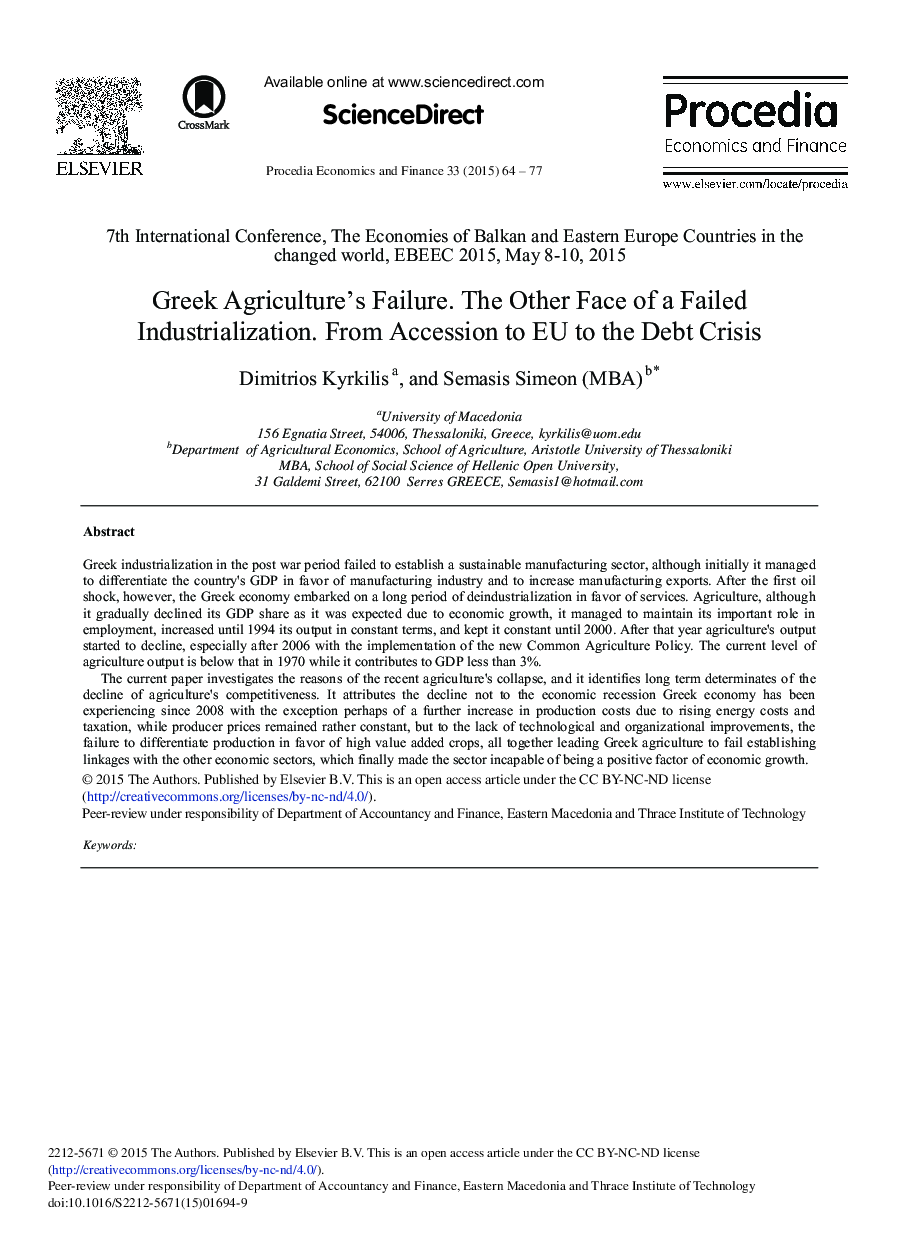| Article ID | Journal | Published Year | Pages | File Type |
|---|---|---|---|---|
| 980745 | Procedia Economics and Finance | 2015 | 14 Pages |
Greek industrialization in the post war period failed to establish a sustainable manufacturing sector, although initially it managed to differentiate the country's GDP in favor of manufacturing industry and to increase manufacturing exports. After the first oil shock, however, the Greek economy embarked on a long period of deindustrialization in favor of services. Agriculture, although it gradually declined its GDP share as it was expected due to economic growth, it managed to maintain its important role in employment, increased until 1994 its output in constant terms, and kept it constant until 2000. After that year agriculture's output started to decline, especially after 2006 with the implementation of the new Common Agriculture Policy. The current level of agriculture output is below that in 1970 while it contributes to GDP less than 3%.The current paper investigates the reasons of the recent agriculture's collapse, and it identifies long term determinates of the decline of agriculture's competitiveness. It attributes the decline not to the economic recession Greek economy has been experiencing since 2008 with the exception perhaps of a further increase in production costs due to rising energy costs and taxation, while producer prices remained rather constant, but to the lack of technological and organizational improvements, the failure to differentiate production in favor of high value added crops, all together leading Greek agriculture to fail establishing linkages with the other economic sectors, which finally made the sector incapable of being a positive factor of economic growth.
